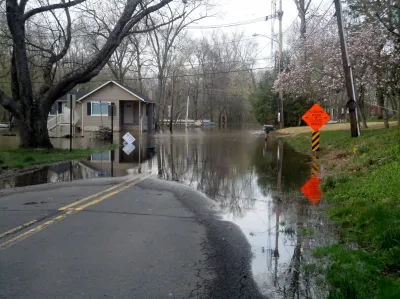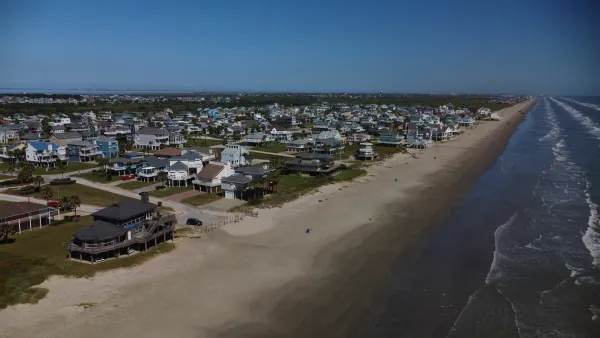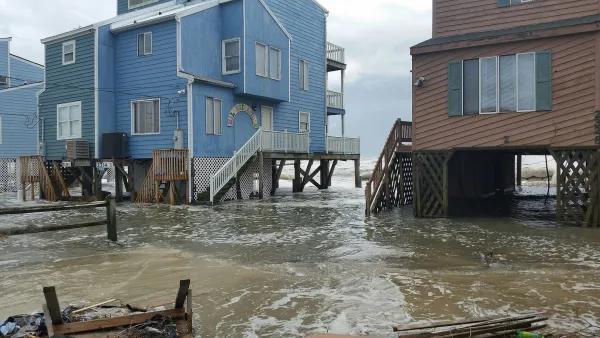Climate change-fueled sea-level rise could cause a housing crisis of a new sort if the federal government doesn't reconsider valuation policies.

In their recent opinion piece, Katie Oran and Yuliya Panfil describe what they predict to be the effect of climate change on the future of housing in the United States. Oran and Panfil warn of a new kind of housing crisis, destroying home values and potential causing a major housing market crash, caused by neglecting to consider sea-level rise.
According to a report from First Street Foundation, federal flood maps don't account for 67% of homes at risk of flooding. Readers can use the organization's Flood Factor tool to determine current and future flood risk by address.
Oran and Panfil account for the damager caused by flooding in monetary terms:
Between 1980 and 2019, the cost of storm damage in the United States has totaled $1.75 trillion. That is $300 billion more than the estimated total value of all property that sits within 700 feet of the US coastline. To put it simply: the US Government and private insurance companies have spent more money rebuilding damaged coastal property than it would have cost to relocate every single home within this risky zone.
Risky mortgages are re-packaged and sold to such government-secured enterprises as Fannie Mae and Freddie Mac. Oran and Panfil call to stop insatiable subsidization and for a government response that acts to consider the climate change risk in valuation and incentivize relocation and buy-out packages in a process of managed retreat.
"The key, however, is for the government to listen to the science and act now to prevent Americans from being swept up in another housing crisis, this time caused by climate change," opine Oran and Panfil.
FULL STORY: Climate change is threatening to create a new housing crisis in America

Analysis: Cybertruck Fatality Rate Far Exceeds That of Ford Pinto
The Tesla Cybertruck was recalled seven times last year.

National Parks Layoffs Will Cause Communities to Lose Billions
Thousands of essential park workers were laid off this week, just before the busy spring break season.

Retro-silient?: America’s First “Eco-burb,” The Woodlands Turns 50
A master-planned community north of Houston offers lessons on green infrastructure and resilient design, but falls short of its founder’s lofty affordability and walkability goals.

Test News Post 1
This is a summary

Analysis: Cybertruck Fatality Rate Far Exceeds That of Ford Pinto
The Tesla Cybertruck was recalled seven times last year.

Test News Headline 46
Test for the image on the front page.
Urban Design for Planners 1: Software Tools
This six-course series explores essential urban design concepts using open source software and equips planners with the tools they need to participate fully in the urban design process.
Planning for Universal Design
Learn the tools for implementing Universal Design in planning regulations.
EMC Planning Group, Inc.
Planetizen
Planetizen
Mpact (formerly Rail~Volution)
Great Falls Development Authority, Inc.
HUDs Office of Policy Development and Research
NYU Wagner Graduate School of Public Service




























